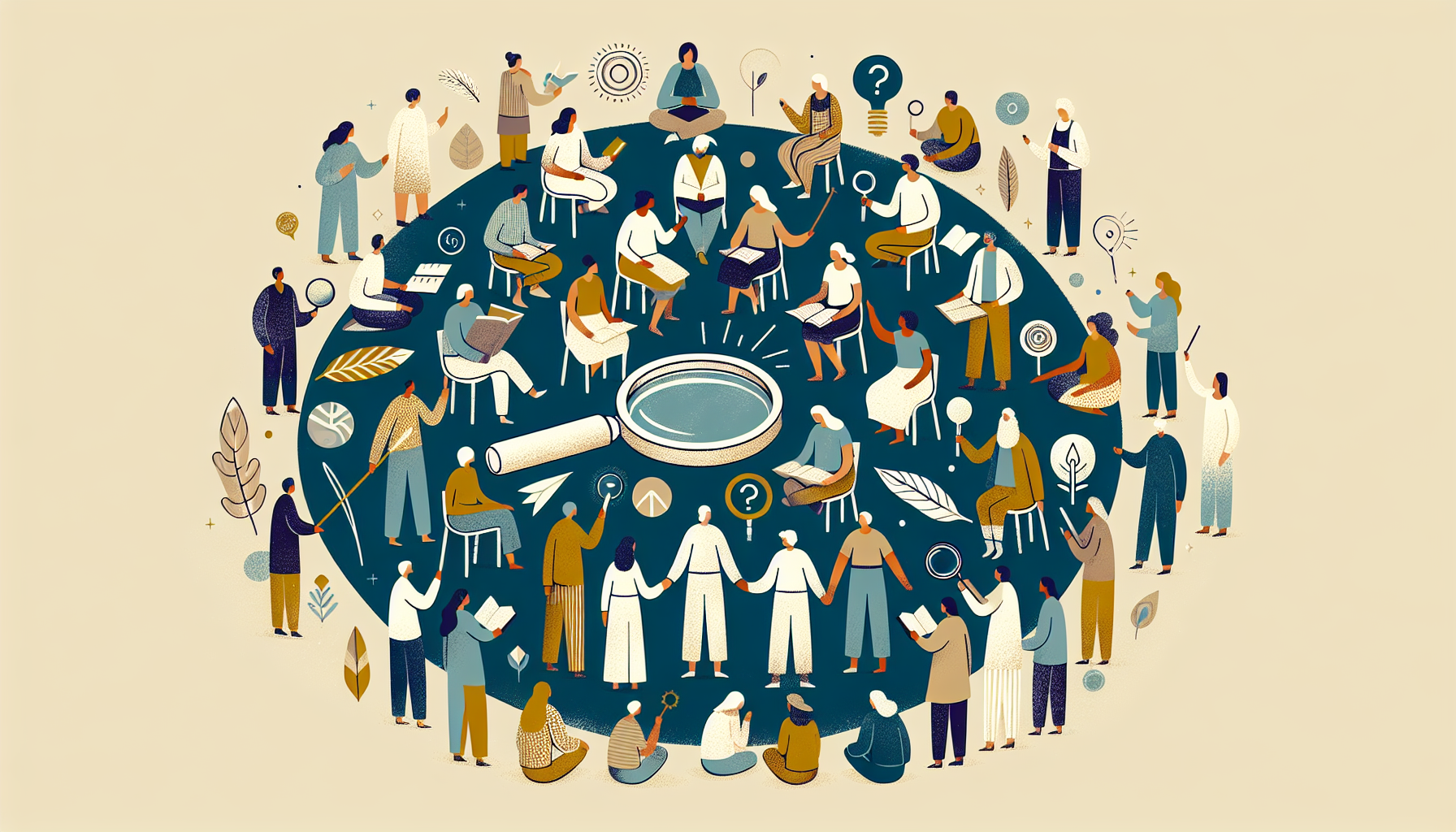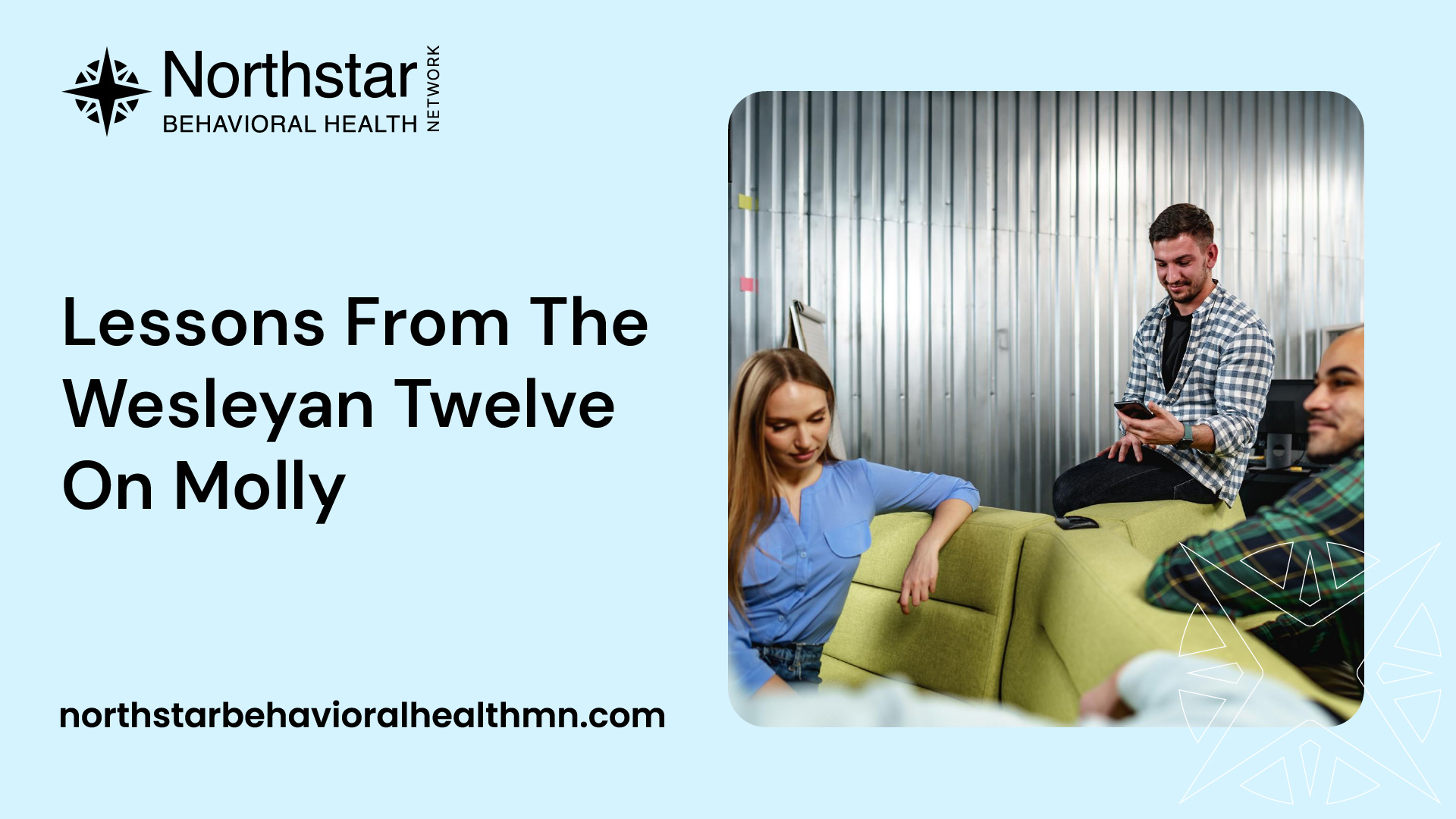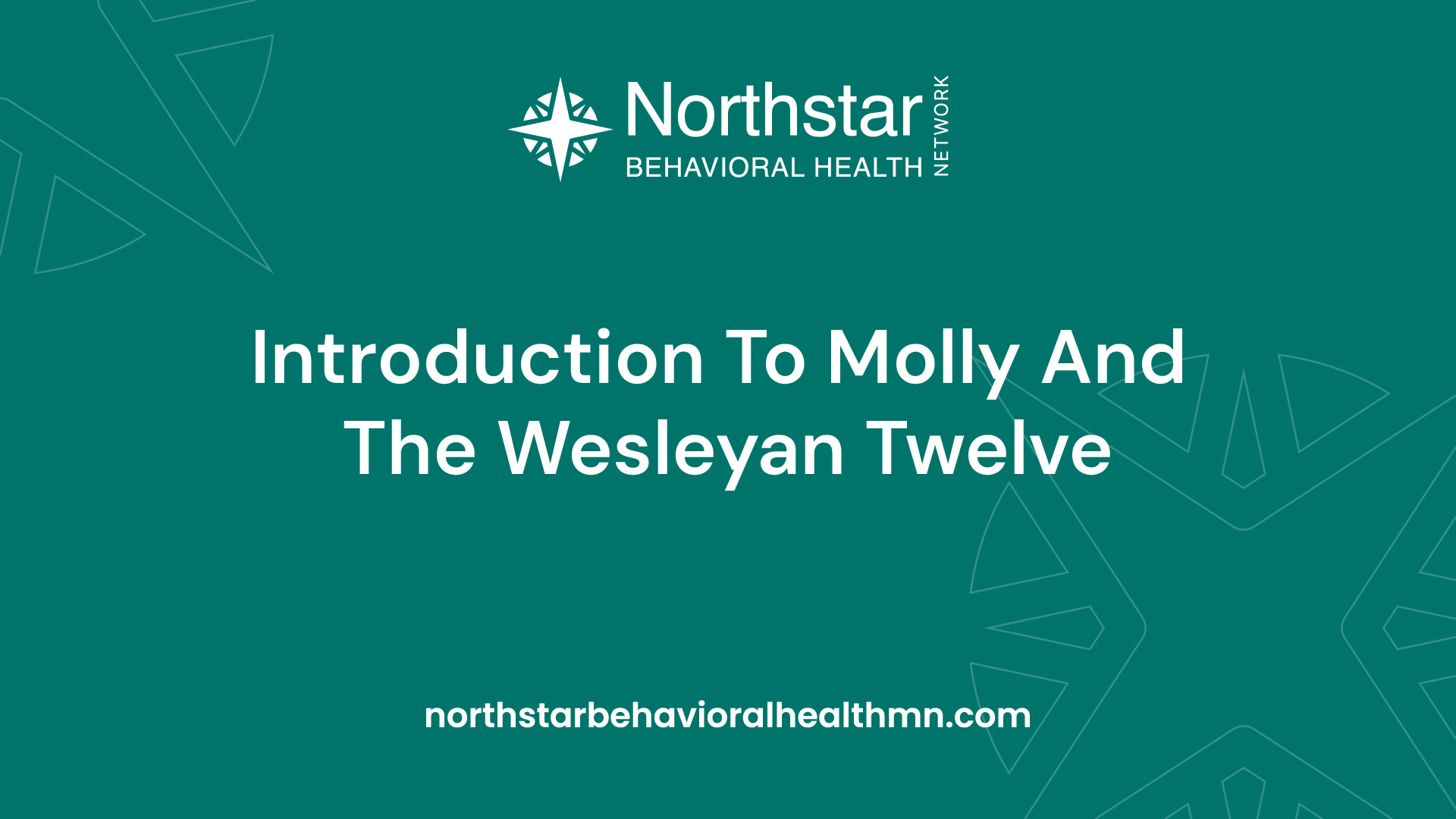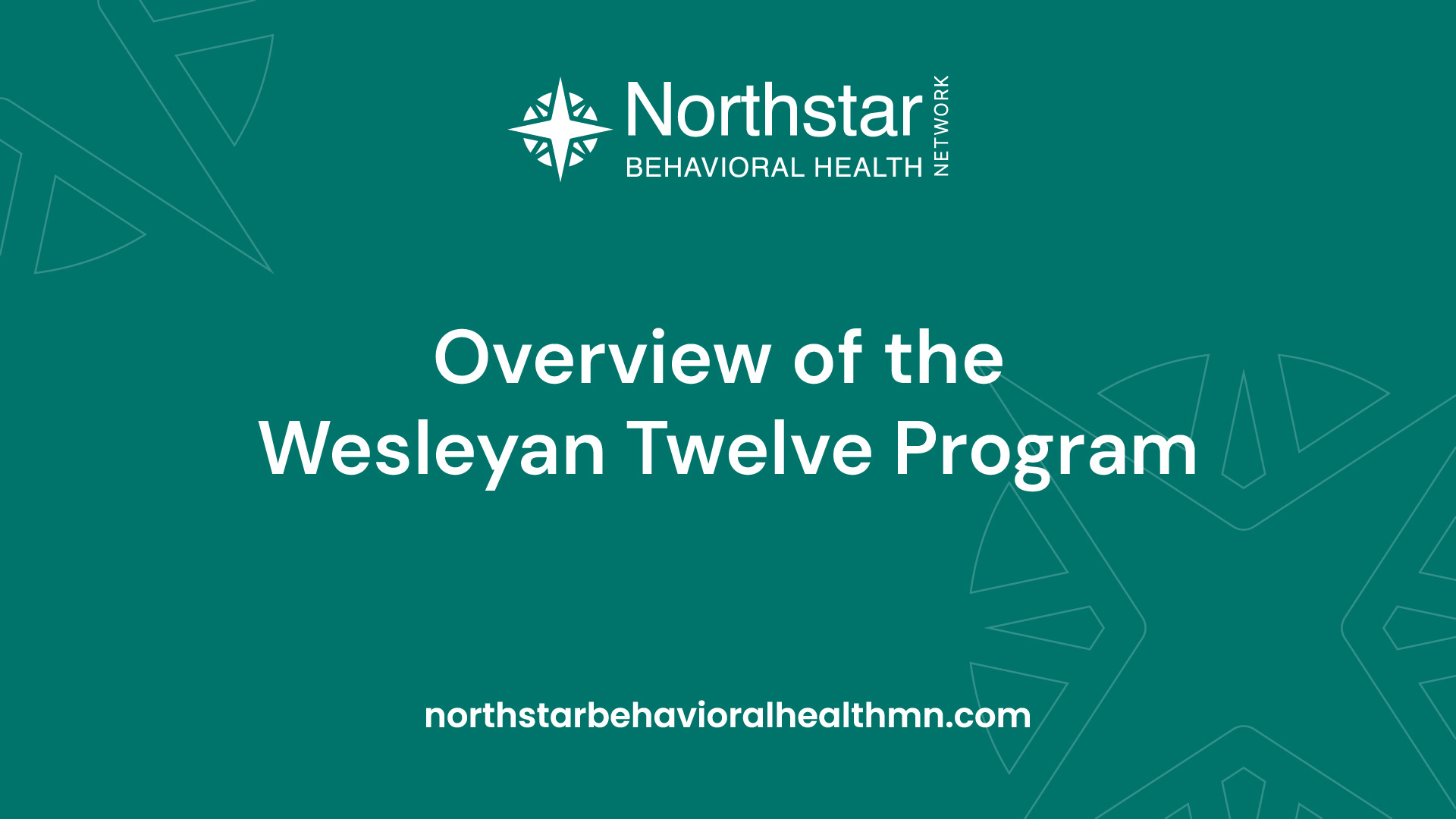August 4, 2024
Lessons From The Wesleyan Twelve On Molly
Learn from personal stories and strategies for overcoming addiction.


Introduction To Molly And The Wesleyan Twelve
Meet Molly, a courageous individual who, like many others, struggled with addiction. Molly's journey toward recovery was made possible through the Wesleyan Twelve program, a transformative experience that provided her with the tools and support necessary to overcome addiction and rebuild her life.

Overview of the Wesleyan Twelve Program
The Wesleyan Twelve program is a comprehensive addiction recovery program that combines evidence-based practices with a supportive community environment. The program is rooted in the principles of the Twelve Steps, a well-established framework for personal growth and recovery.
Through the Wesleyan Twelve program, participants like Molly embark on a transformative journey that addresses the physical, emotional, and spiritual aspects of addiction and recovery. The program offers a structured curriculum that guides individuals through various stages of recovery, empowering them to make positive changes and develop essential life skills.
The Wesleyan Twelve program is designed to provide a supportive and non-judgmental environment where individuals can explore the underlying causes of their addiction, gain insight into their behaviors, and develop healthier coping mechanisms. By engaging in group therapy sessions, individual counseling, and educational workshops, participants are equipped with the knowledge and skills needed to navigate the challenges of recovery.
The program also emphasizes the importance of community and peer support. Molly and the other participants in the Wesleyan Twelve program form a tight-knit community, offering each other encouragement, understanding, and accountability. This sense of camaraderie fosters a strong support system that plays a crucial role in the journey to recovery.
By participating in the Wesleyan Twelve program, Molly and others like her gain the confidence and resilience necessary to overcome addiction and build a brighter future. Throughout their recovery journey, they learn valuable lessons, develop healthy coping strategies, and find the hope and support needed to embrace a life free from addiction.
In the following sections, we will delve deeper into the lessons learned through the Wesleyan Twelve program, the impact it has on the community, and the strategies for finding hope and moving forward on the path to recovery.

Lessons Learned
When it comes to overcoming addiction, the personal stories of recovery from individuals who have been through similar experiences can provide valuable insights and inspiration. The Wesleyan Twelve program, centered around the journey of Molly and her companions, offers important lessons that can help others navigate the path to recovery.
Personal Stories of Recovery
The Wesleyan Twelve program features a diverse group of individuals who have successfully overcome addiction and transformed their lives. Their personal stories of recovery serve as a source of hope and motivation for those who may be struggling with addiction themselves.
Each member of the Wesleyan Twelve has faced unique challenges and experiences on their road to recovery. These stories highlight the resilience, determination, and strength required to overcome addiction. By sharing their journeys, the Wesleyan Twelve aims to inspire and encourage others to seek the help they need and embark on their own path to recovery.
Strategies for Overcoming Addiction
Through their experiences, the members of the Wesleyan Twelve have discovered various strategies and techniques that have proven effective in overcoming addiction. These strategies can be valuable tools for individuals seeking to break free from the grips of addiction.
Here are a few strategies that the Wesleyan Twelve have found helpful:
- Seeking professional help: Many members of the Wesleyan Twelve credit professional treatment programs, such as inpatient drug detox and outpatient drug rehab, as crucial components of their recovery journey. These programs provide guidance, support, and evidence-based therapies to help individuals address the root causes of their addiction and develop coping mechanisms.
- Building a support network: Surrounding oneself with a supportive and understanding network of family, friends, and peers can greatly aid in the recovery process. The Wesleyan Twelve emphasize the importance of connecting with others who have experienced similar struggles, as they can offer empathy, encouragement, and guidance during challenging times.
- Developing healthy coping mechanisms: Finding alternative ways to cope with stress, anxiety, and other triggers is essential in maintaining sobriety. The members of the Wesleyan Twelve have discovered the value of engaging in activities such as exercise, therapy, meditation, and creative outlets as healthy outlets for their emotions.
- Setting realistic goals: Breaking down the recovery journey into smaller, achievable goals can help individuals maintain focus and celebrate milestones along the way. By setting realistic goals, the Wesleyan Twelve have been able to regain control over their lives and build a strong foundation for lasting sobriety.
While these strategies have proven effective for the members of the Wesleyan Twelve, it's important to remember that each individual's journey to recovery is unique. What works for one person may not work for another. It's crucial to find the strategies and techniques that resonate with you and seek professional guidance to develop a personalized recovery plan.
By learning from the personal stories and strategies shared by the Wesleyan Twelve, individuals facing addiction can find hope, inspiration, and practical guidance to navigate their own path to recovery. Remember, you are not alone, and there is support available to help you overcome addiction and build a brighter future.
Impact on the Community
Molly and the Wesleyan Twelve have had a significant impact on the community, particularly in terms of healing and rebuilding relationships, as well as making valuable contributions to society.
Healing and Rebuilding Relationships
One of the remarkable outcomes of the Wesleyan Twelve program is the healing and rebuilding of relationships. Molly and the other participants have been able to mend broken bonds with their friends, families, and loved ones. Through their commitment to recovery and personal growth, they have shown that it is possible to repair the damage caused by addiction.
By actively participating in counseling sessions, group therapy, and family support programs, the Wesleyan Twelve have learned valuable communication and coping skills. These newfound abilities have enabled them to address the pain and resentments that often accompany addiction and work towards reconciliation. As a result, they have been able to rebuild trust and develop healthier, more supportive relationships within their communities.
Contributions to Society
The impact of Molly and the Wesleyan Twelve extends beyond personal relationships. Individually and collectively, they have made meaningful contributions to society. Through their stories of recovery and resilience, they have inspired others who may be struggling with addiction to seek help and embark on their own journey to recovery.
Additionally, Molly and the Wesleyan Twelve have actively engaged in community outreach programs, sharing their experiences and knowledge to raise awareness about addiction and the path to recovery. By participating in events such as fundraisers, educational workshops, and speaking engagements, they have helped reduce the stigma surrounding addiction and promoted a more compassionate and understanding community.
Their contributions also extend to volunteering and giving back to the community. Molly and her fellow participants have dedicated their time and energy to various initiatives, such as supporting local organizations that provide assistance to individuals and families affected by addiction. Their selfless acts of service demonstrate that recovery is not only about personal growth but also about making a positive impact on the lives of others.
The impact of Molly and the Wesleyan Twelve on the community serves as a testament to the power of recovery and the potential for personal transformation. Through their healing and contributions, they have become advocates for change and beacons of hope for those who are still struggling with addiction. Their stories inspire others to believe in the possibility of recovery and the potential for a brighter future.
Remember, if you or someone you know is struggling with addiction, there are support systems and resources available. Reach out to local organizations, seek professional help, and remember that recovery is possible. For more information, visit our article on finding accredited heroin rehab centers to help you get clean.
Finding Hope
When struggling with addiction, finding hope is a crucial step towards recovery. The journey to sobriety can be challenging, but with the right support systems and resources, individuals can build a brighter future for themselves. In this section, we will explore the importance of support systems and available resources in finding hope and overcoming addiction.
Support Systems and Resources
Having a strong support system is essential for individuals on the path to recovery. Support can come from various sources, including family, friends, support groups, and addiction counselors. These individuals play a vital role in providing encouragement, understanding, and guidance throughout the recovery process.
Support groups, such as the Wesleyan Twelve program, can be particularly beneficial. These groups offer a safe space for individuals to share their experiences, gain valuable insights from others who have faced similar challenges, and receive support from peers who understand what they are going through. The sense of community and understanding provided by these groups can significantly contribute to an individual's recovery journey.
In addition to support systems, there are numerous resources available to help individuals on their path to recovery. These resources may include educational materials, online forums, helplines, and treatment centers. Seeking professional help from addiction counselors and therapists can provide individuals with the tools and techniques needed to overcome addiction and establish a healthier lifestyle.
It's important to remember that everyone's journey to recovery is unique, and finding the right support systems and resources may take time. By reaching out and exploring different options, individuals can find the support they need to navigate the challenges of addiction and find hope for a better future.
Building a Brighter Future
Building a brighter future involves more than just overcoming addiction. It requires individuals to make positive changes in various aspects of their lives, including their physical and mental well-being, relationships, and future goals.
Taking care of one's physical and mental health is crucial. Engaging in regular exercise, eating a balanced diet, and getting enough sleep can contribute to overall well-being and aid in the recovery process. Seeking professional help for any co-occurring mental health issues is also essential, as addiction and mental health often go hand in hand.
Rebuilding relationships that may have been strained or damaged during the addiction period is another important aspect of building a brighter future. Open and honest communication, forgiveness, and a commitment to making amends can help heal and strengthen these relationships.
Setting goals for the future is a powerful way to create a sense of purpose and direction. These goals may include pursuing education, starting a new career, or contributing to society in meaningful ways. Exploring opportunities for personal and professional growth can provide individuals with a renewed sense of hope and motivation.
By focusing on support systems, utilizing available resources, and making positive changes in various aspects of life, individuals can find hope and build a brighter future after overcoming addiction. The journey may have its ups and downs, but with determination and the right support, a fulfilling and addiction-free life is within reach.
Moving Forward
Recovery is a journey, and for those seeking to overcome addiction, taking steps towards recovery is an important part of the process. The Wesleyan Twelve program provides valuable insights into the path to recovery, offering guidance and support. Here, we will explore the steps towards recovery and the practices necessary to maintain sobriety and wellness.
Steps Towards Recovery
Recovery from addiction involves a series of steps that contribute to a healthier and more fulfilling life. The Wesleyan Twelve program emphasizes the following steps towards recovery:
- Acknowledgment: The first step towards recovery is acknowledging the existence of the addiction and the need for change. This self-awareness is crucial in initiating the recovery process.
- Seeking Help: Seeking professional help is an essential aspect of recovery. It may involve reaching out to therapists, counselors, or support groups that specialize in addiction treatment. Outpatient drug rehab centers can provide guidance tailored to individual needs. For more information, refer to our article on finding accredited heroin rehab centers to help you get clean.
- Creating a Support System: Building a support system is vital for long-term recovery. This may involve connecting with friends, family, or support groups who can provide encouragement, understanding, and accountability during the recovery journey.
- Developing Coping Mechanisms: Learning healthy coping mechanisms is crucial to avoid relapse. This may include practicing mindfulness, engaging in hobbies, physical exercise, or seeking professional therapy to manage stress and triggers effectively.
- Setting Goals: Setting realistic and achievable goals is an important part of the recovery process. These goals can provide direction and motivation, helping individuals stay focused on their journey towards sobriety.
- Embracing a Healthy Lifestyle: Adopting a healthy lifestyle can greatly contribute to long-term recovery. This includes prioritizing physical and mental well-being through regular exercise, proper nutrition, and quality sleep.
Maintaining Sobriety and Wellness
Maintaining sobriety and wellness is an ongoing commitment that requires dedication and perseverance. The following practices can help individuals in their journey towards maintaining sobriety:
- Avoiding Triggers: Identifying and avoiding triggers that may lead to relapse is crucial. This may involve distancing oneself from environments, people, or situations that may tempt or jeopardize sobriety.
- Continuing Support Systems: Continuing to engage with support systems and attending regular support group meetings can provide ongoing guidance, encouragement, and a sense of community. For more information, refer to our article on welcome STR alumni of addiction treatment.
- Practicing Self-Care: Prioritizing self-care is essential for maintaining sobriety and overall well-being. Engaging in activities that promote relaxation, self-reflection, and personal growth can help individuals stay focused and centered.
- Monitoring Mental Health: Regularly monitoring mental health and seeking professional help when needed is crucial. Mental health support can aid individuals in managing any underlying issues that may contribute to addiction or relapse.
- Celebrating Milestones: Celebrating milestones and achievements along the recovery journey is important for self-motivation and reinforcement. Recognizing progress and rewarding oneself for achievements can boost confidence and provide a positive outlook.
By following these steps towards recovery and incorporating practices to maintain sobriety and wellness, individuals can find hope, healing, and a brighter future. Remember, everyone's journey is unique, and it's important to seek professional guidance and tailor these steps to individual needs.

.jpg)




.jpg)

